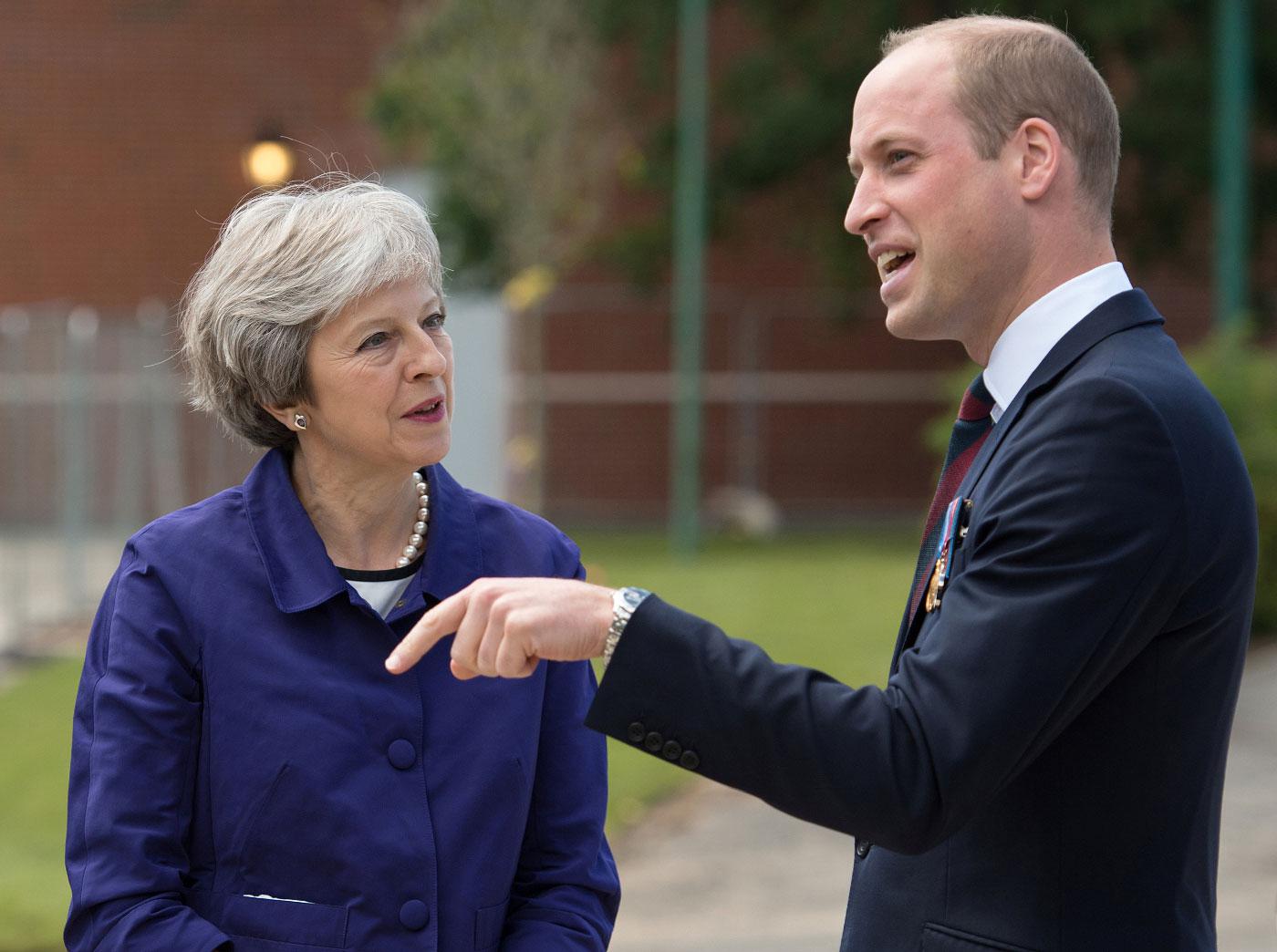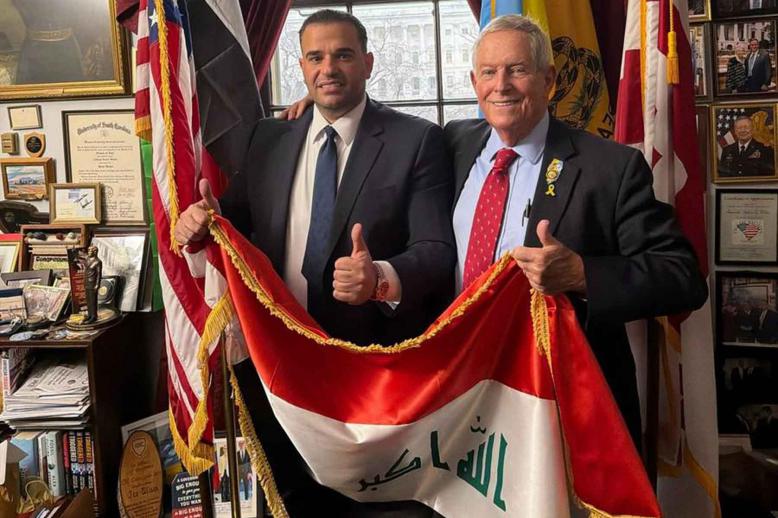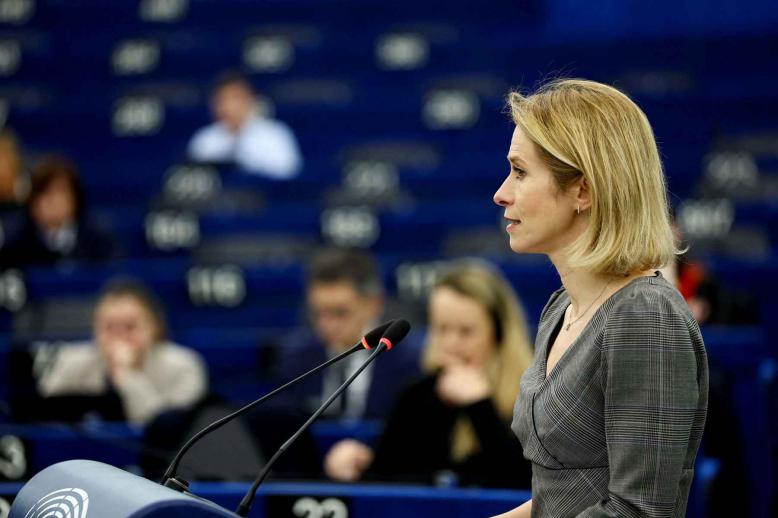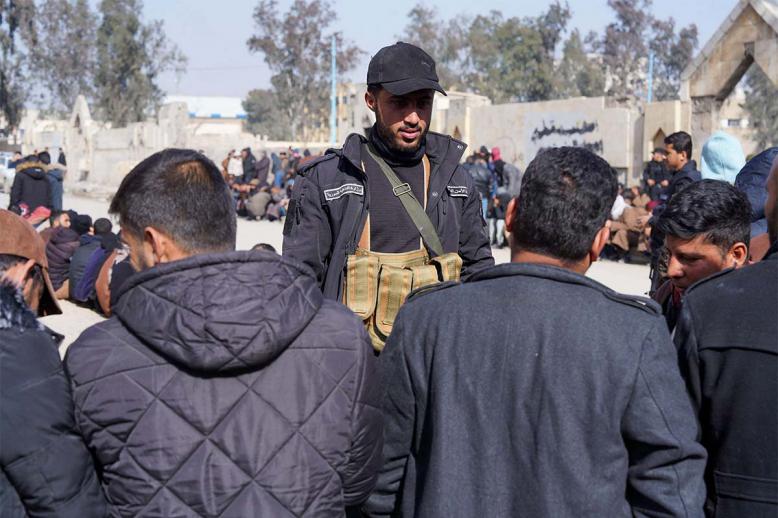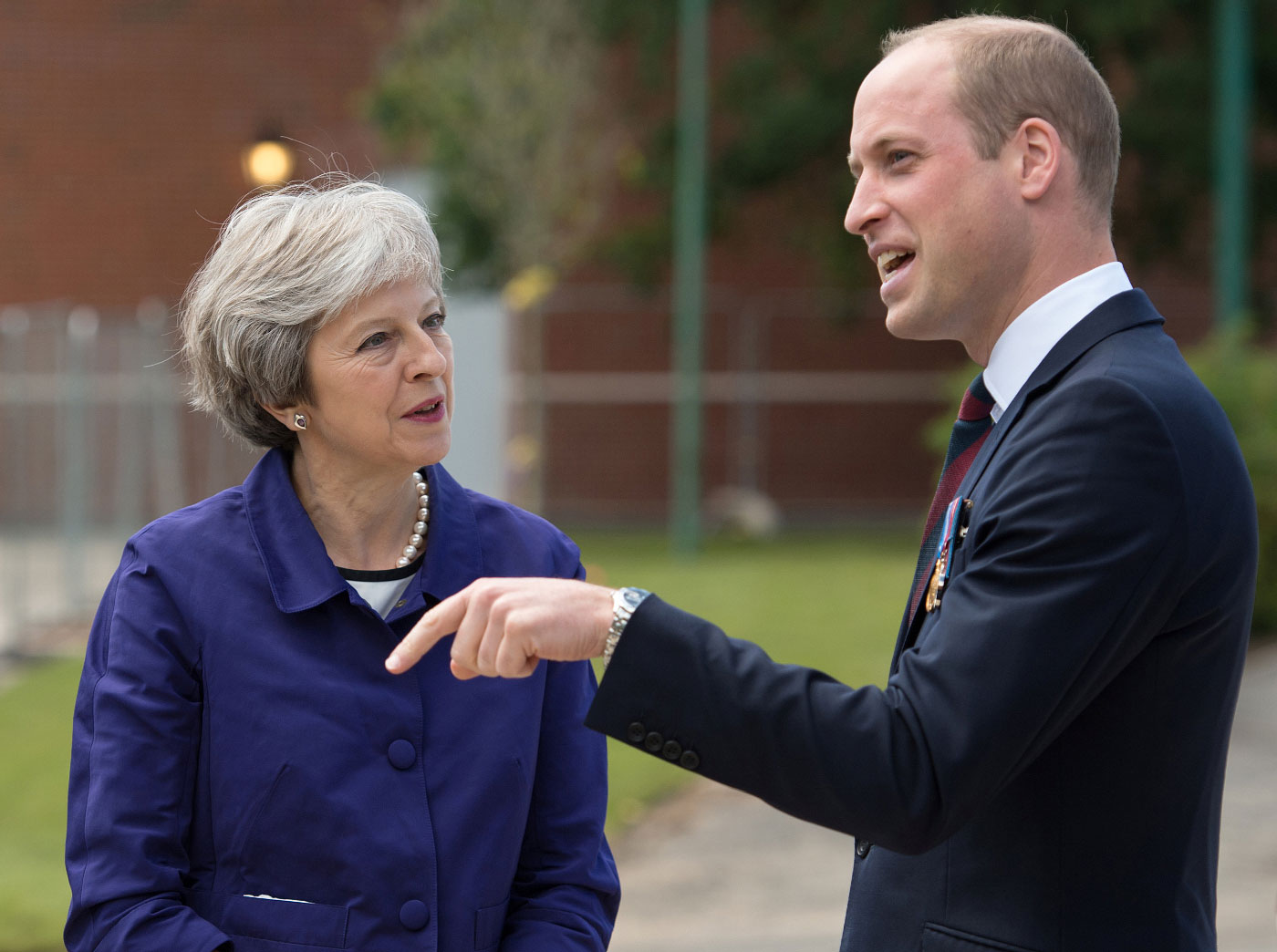Britain's Prince William on historic trip to Palestine
JERUSALEM - Prince William will next week become the first member of Britain's royal family ever to pay an official visit to both Israel and the Palestinian territories.
Britain captured Palestine from the crumbling Ottoman Empire during World War One in 1917 and governed the region under a League of Nations mandate for almost three decades until Israel's independence in 1948.
The award of the mandate, during the post-war deal-making that redrew the map of the Middle East, also endorsed the 1917 Declaration written by foreign secretary Arthur Balfour, in which Britain expressed support for a ”national home for the Jewish people in Palestine.”
During the bulk of the mandate, Britain supported the Zionist movement and the colonising of Palestinian land by Jewish settlers from Europe. It is still blamed for sowing the seeds of a conflict that continues to wrack the region.
Seventy years later, Israelis and Palestinians who lived through the era remember it very differently.
Mixed feelings
Under the British, the early Zionist movement was able to lay the groundwork for what would become modern Israel. Its parliament, laws and military bear traces of British influence, as do many buildings and street names.
But Israelis also remember how Britain restricted the number of Jews fleeing to Palestine from Nazi-controlled Europe. Tens of thousands who tried to enter illegally by sea were taken to detention camps in Cyprus and Palestine.
"We loved the British, but their policy, when it was against us, sparked anger and rage that are understandable," said Shlomo Hillel, 95, a former Israeli diplomat and minister.
Hillel's late wife, Suzanna, fled Austria when the Nazis annexed it in 1938. After a year at sea she was taken with her family to a British detention camp in Palestine, where they were held for another year. "Until this day, I do not understand it," Hillel said.
Ram Haviv, 93, a retired Israeli senior civil servant, served in the British Army in Iraq, Egypt and Iran in World War Two.
"The relationship wasn't too favourable on the part of the British government of that time. But we'd rather now remember the positive aspects for which we are just the same thankful," he said.
"After the Second World War, the state of Israel was founded on the cornerstones of the British rule in Palestine."
'Britain gave our land to the Jews'
Sitting under an apple tree in Dar Jarir village in the Israeli-occupied West Bank, Abdel-Fattah Shijaiyah mostly remembers the British as an unwelcome military presence who imprisoned his father and issued a death warrant on his brother for their involvement in an Arab uprising in the 1930s.
Shijaiyah, 96, had joined the police under the British "because of the state of poverty: there was no money and my father was in jail".
His brother was never caught and was later pardoned. Shijaiyah himself later took up arms in the 1940s, as Arab feelings hardened against the British and the growing numbers of Jewish immigrants from Europe.
"We are convinced Britain gave our land to the Jews," he said.
In dusty archives in Gaza, old British land records are still in use. The yellowing pages are stamped with the mandate-era name "Palestine Government". The listed proprietor for some districts is recorded as "the High Commissioner, for the time being, in trust for the Government of Palestine".
In Khan Younis refugee camp in the Gaza Strip, Ahmed Jarghoun, 75, displayed a document for a piece of land that his father bought and registered with the British authorities in 1944. The land lies on the other side of the Gaza-Israel border, in what is now the Israeli city of Lod.
"I want my land back," he said. "We, as Palestinians, want our country back. Balfour gave what he did not own to those who were undeserving."
A royal return
Second in line to the British throne, the 36-year-old Prince William will arrive Monday without his wife Kate, who in April gave birth to their third child, Prince Louis.
His tour comes at a time of diplomatic upheaval in the region, after US President Donald Trump’s decision to recognise Jerusalem as the capital of Israel and move the US Embassy there.
The prince’s communications secretary, Jason Knauf, said the visit would be non-political, allowing “a spotlight to be brought to bear on the people of the region: their cultures, their young people, their aspirations, and their experiences”.
Dror Zeigerman, a former Israeli ambassador to London, said the Zionist state has long sought a royal visit.
"We asked many times for a visit of Prince Charles or the Queen and we were refused," he said.
"I assume that it's not the queen or the prince, it's the Foreign Office... I don't know why they changed their mind, maybe it's time."
Official visits by British royals take place at the request of the government, but statements from the prince's household have given little explanation for the timing of next week's trip.
Kensington Palace has underlined the "non-political nature of His Royal Highness's role -- in common with all royal visits overseas".
But west of the Jordan River, everything is political.
Biblical capital
The official schedule's reference to east Jerusalem as "in the Occupied Palestinian Territories" has sparked particular anger among some right-wing Israeli politicians.
"United Jerusalem has been the capital of Israel for more than 3,000 years," Jerusalem Affairs Minister Zeev Elkin, of Prime Minister Benjamin Netanyahu's right-wing Likud party, wrote on Twitter.
"No distortion in the briefing document for this or that tour will change reality," said the minister, who is running for mayor of Jerusalem.
The city’s fate is an emotional issue at the heart of the conflict.
Israel seized the West Bank and Arab east Jerusalem from Jordan in the 1967 Six Day war.
It later annexed east Jerusalem in an illegal move never recognised by the international community and condemned as "a violation of international law" in a 1980 UN Security Council resolution.
Israel says the territory, home to key holy sites sacred to Jews, Christians and Muslims, is an inseparable part of its 'eternal Jewish capital'.
Over the years, it has been accused of implementing policies designed to seize land from Palestinians and ensure a Jewish majority in Jerusalem.
This includes massive land grabs, rapid construction of Jewish-only settlements and the imposition of a repressive, apartheid system designed to stifle Palestinians' daily life.
200,000 Jewish settlers live in settlements in East Jerusalem built either entirely or partially on private Palestinian property. 2,000 of these settlers live in the midst of Palestinian neighbourhoods, under the protection of Israel's occupying military.
Palestinians for their part claim east Jerusalem as the capital of a future state. The holy city has been the center of Palestinian life for hundreds of years.
But Israel's Jerusalem Post newspaper held a different view.
"Jerusalem has been the capital of the Jewish people since the time of King David," it wrote. "It deserves more than a royal snub by the Duke of Cambridge."
Overdue gestures
The Post did however describe the visit as "a welcome, and long overdue, gesture after 70 years of Israeli independence."
On Monday William will fly to Israel and stay at Jerusalem's King David hotel, which was Britain's administrative headquarters during its rule of Palestine.
In July 1946 it was bombed by the Irgun, an underground Jewish terrorist group, killing more than 90 people. Irgun members would eventually be absorbed into the Israeli Defence Forces.
Mohammad Jadallah, 97, still remembers that day, when he had just turned up for his job at the hotel as a waiter. The explosion "cut the room in half," he recalls. "There was a state of panic. People were running in the dining room and in other places in the hotel."
Less than two years later, Jadallah was no longer serving the British at tables, as he was fighting on the Arab side in the war that broke out as the British era limped to a close.
In 1948, exhausted by World War Two and the strain of holding warring Jewish and Arab forces apart, the British withdrew.
Packed schedule
Other members of William's family have made unofficial visits to Israel and east Jerusalem in the past.
His father, Prince Charles, attended the 1995 funeral of assassinated Israeli premier Yitzhak Rabin and that of former president Shimon Peres in 2016.
In 1994 the Duke of Edinburgh, William's grandfather, attended a ceremony at the Yad Vashem Holocaust memorial in honour of his own mother, Princess Alice of Greece, who sheltered Jews from the Nazis during World War II.
Charles and his father have both visited the tomb of the princess on the Mount of Olives in east Jerusalem.
William will do the same.
He arrives on Sunday in Amman, where he will stay at King Abdullah's private residence, although he is not expected to meet the monarch.
Kensington Palace says the visit aims at "building relations" with the heir to the Hashemite throne, 23-year-old Crown Prince Hussein bin Abdullah.
Hussein, like his father and Prince William, is a graduate of Britain's Sandhurst military academy.
William's packed schedule includes meetings with young Jordanians, British servicemen and Syrian refugees.
On Tuesday, June 26, William will visit Yad Vashem and lay a wreath.
He will then have talks with Netanyahu and meet President Reuven Rivlin.
The following day he will call on Palestinian president Mahmud Abbas in the occupied West Bank city of Ramallah and meet Palestinian refugees and young people.
On the final day of his visit, Thursday June 28, he will visit Jerusalem's Mount of Olives.


